Dyslexia Awareness Week – Best 2025 teaching resources
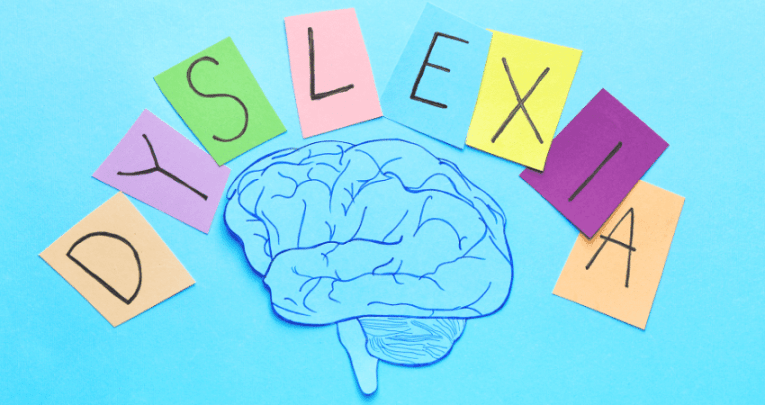
Raise awareness of dyslexia in schools, support students and learn how to spot signs early with these resources, activities and helpful advice articles…

- by Teachwire
- Classroom expertise and free resources for teachers
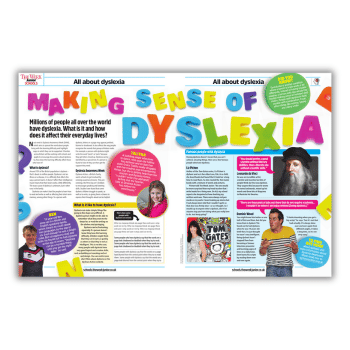
Use Dyslexia Awareness Week to celebrate and support dyslexic pupils in your school with these ideas and resources…
Table of contents
What is Dyslexia Awareness Week?
Dyslexia Awareness Week is an annual event run by the British Dyslexia Association. 2025’s theme is ‘Dyslexia: Raising the Volume.’
Dyslexia Awareness Week is all about celebrating children’s individuality, creativity, passion and uniqueness.
When is Dyslexia Awareness Week?
Dyslexia Awareness Week 2025 takes place between 6th-12th October.
What is dyslexia?
Dyslexia is the most common learning difference, with up to 20% of the population affected by it. It is genetic and runs in families, and has common characteristics that can be identified as early as pre-school.
Dyslexic brains are wired slightly differently, which means that dyslexic people have a unique way of processing information.
As Kate Griggs, founder and CEO of charity Made By Dyslexia explains, dyslexic people are often naturally curious and highly creative, with an ability to unconventionally connect the dots and think laterally.
“Dyslexic people are often naturally curious and highly creative”
This difference results in a pattern of challenges but extraordinary strengths too in areas like creativity, problem-solving, empathy and communication.
Children with dyslexia may struggle with other things such as concentration and following instructions, remembering facts and figures, and elements of literacy, such as reading, spelling, punctuation and grammar.
Dyslexia Awareness Week resources
Dyslexia fact sheet
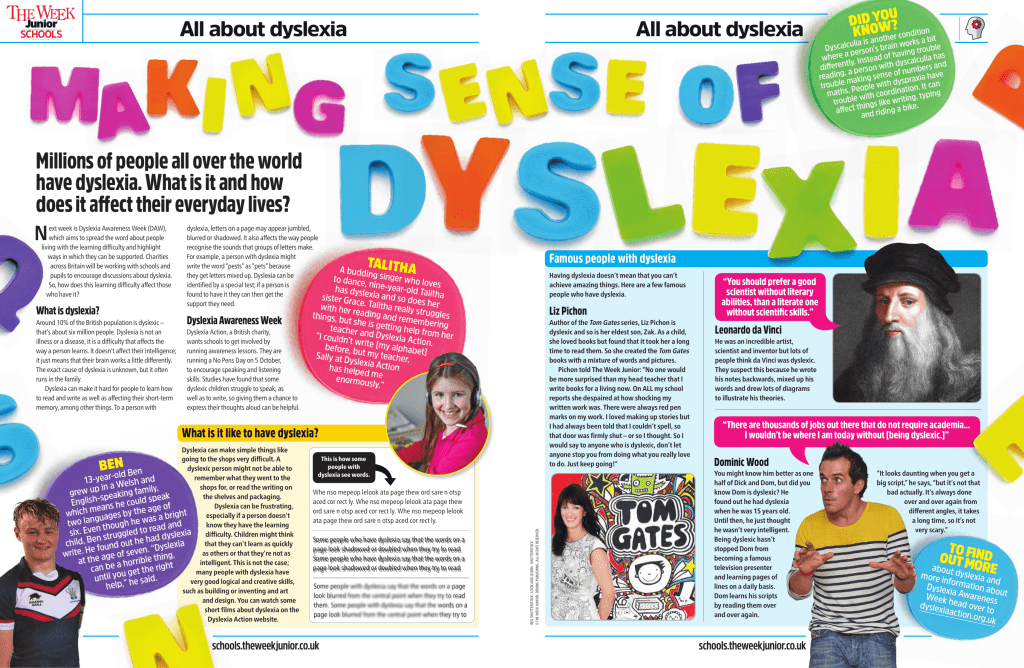
This free PDF download from The Week Junior explains dyslexia to children in a bite-size, age-appropriate way. It covers:
- What dyslexia is
- Dyslexia Awareness Week
- First-hand accounts
- Famous people with dyslexia
British Dyslexia Association resources
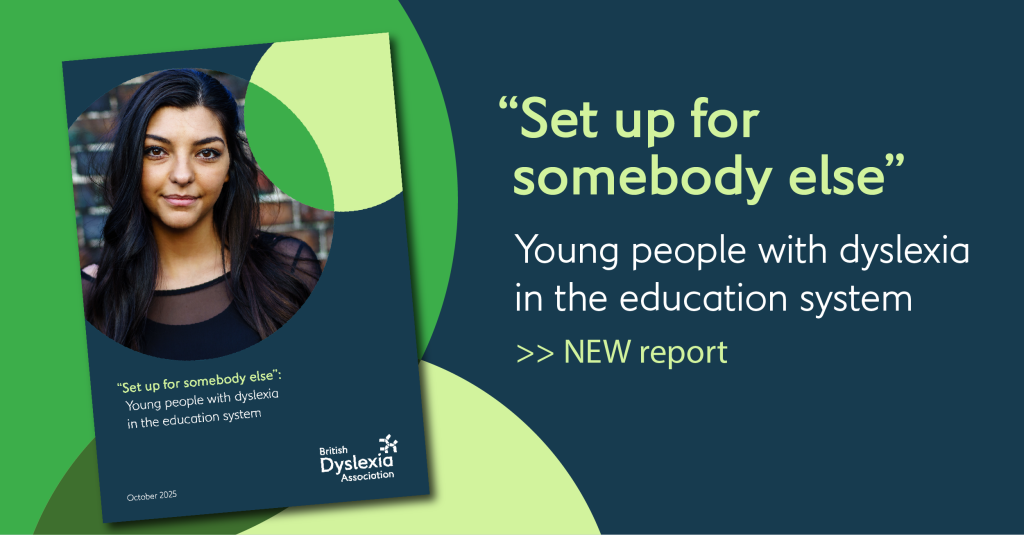
This report, ‘Set up for somebody else’: Young people with dyslexia in the education system, shines a light on the experiences and challenges of dyslexic children and young people in school. It sets out what young people think would help them, and recommendations for government.
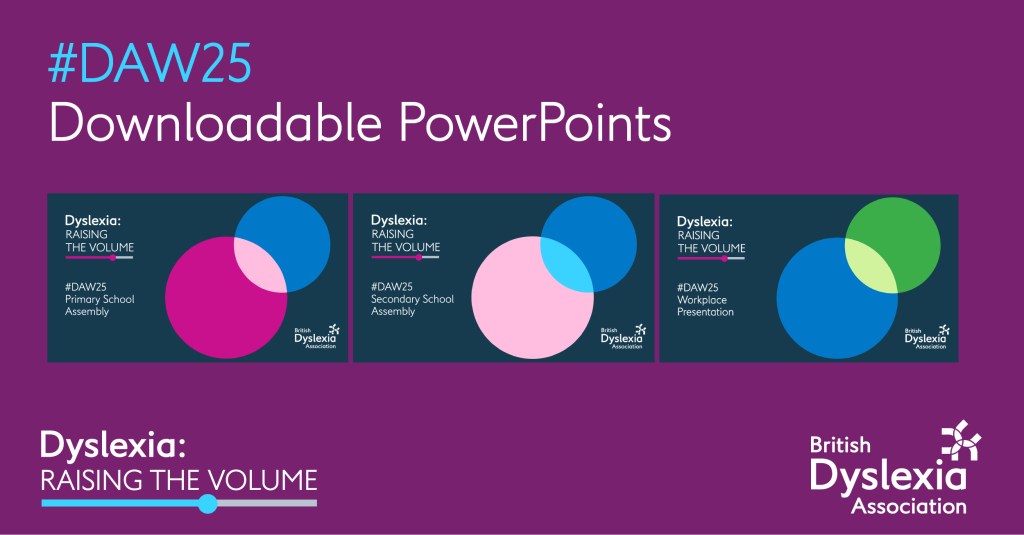
These primary and secondary school presentations use a quick quiz format to challenge myths and reveal how dyslexia shapes reading, writing, problem-solving and creativity.
Finally, this video follows Ella’s story about growing up with dyslexia, how she got on in school and how she navigates the world of work.
Online training
Made by Dyslexia’s ‘Learn Dyslexia’ campaign asks every teacher to ‘take a day for dyslexia’ and skill up using its free online training, in partnership with Microsoft. Dyslexia Awareness Week is a great time to sign up.
You can also undertake a one-hour module called ‘Empower Dyslexic Thinking in Schools‘ which will help you create an inclusive classroom where dyslexic thinkers flourish.
Dyslexia books
When it’s time for Trixie to start school, she is very excited. Sometimes it’s hard to concentrate in class, though. And it’s really hard to read letters. Maybe what Trixie needs is a superpowered plan…
Thunderboots by Naomi Jones and Rebecca Ashdown is an empowering story about starting school with dyslexia that celebrates everyone’s differences. Share it with your class during Dyslexia Awareness Week.
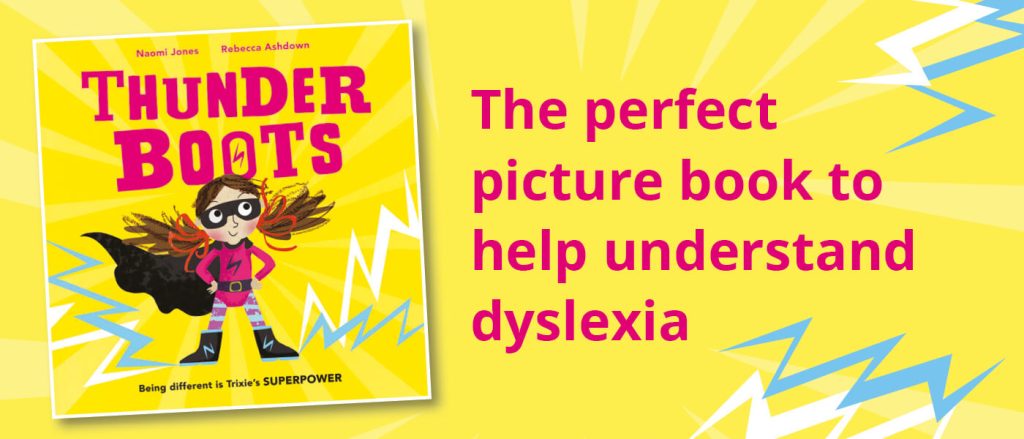
Xtraordinary People by Kate Griggs will help students understand the seven ‘xtraordinary’ strengths that come with dyslexia. It’s a brilliant way to explain dyslexia to kids.
When you’re dyslexic, life at school can feel like a daily grind. In Life After School, around 40 dyslexic young people explain how they’ve made life beyond the school gates work for them.
Funny and fascinating, each interview shows that no matter how difficult life can feel now, there truly are choices when you leave high school that can take you to a future you might never have dreamt of.
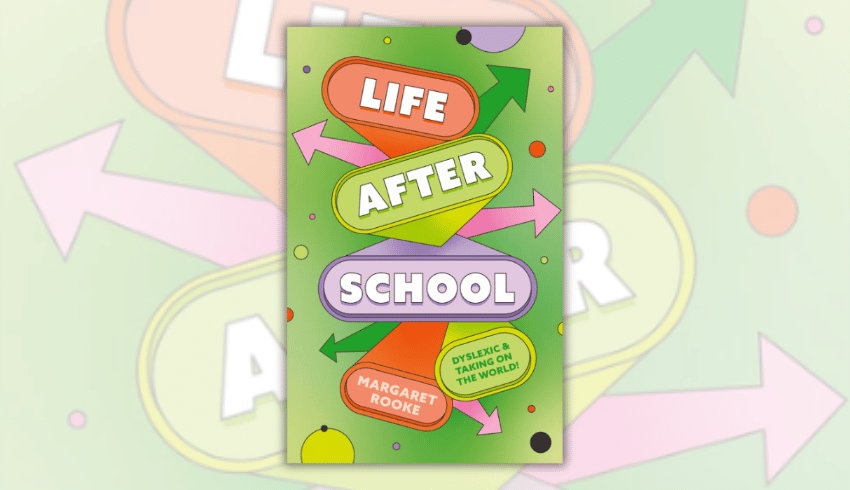
Apply for a Dyslexia Friendly Quality Mark for Education
The Dyslexia Friendly Quality Mark provides a framework of support and understanding to ensure that everyone within your school understands the needs of dyslexic people and that you have appropriate resources and strategies in place.
Read more about how two different schools have made dyslexia-friendly practice central to how they operate.
Lessons in Dyslexic Thinking podcast
Dyslexic thinking is a valuable skills. It’s created everything from the lightbulb to the iPhone. But what is it? Lessons In Dyslexic Thinking are conversations with the world’s most inspiring dyslexics.
Find out what dyslexic thinking is and how each of us can employ it to change the world. Hear powerful stories from spies and sports stars, explorers and entrepreneurs.
University of Dyslexic Thinking
Made By Dyslexia has partnered with Virgin to launch the world’s first University of Dyslexic Thinking, DyslexicU.
It’s a free online platform hosted by the Open University, designed to teach the world the power and value of dyslexia (and how to think like a dyslexic).
Dyslexia Scotland resources
Dyslexia Scotland aims to empower people with dyslexia to reach their full potential. The site contains articles, videos, recommendations for books and games, and other people with dyslexia share their work, experiences and strategies for success.
Download the Addressing Dyslexia toolkit which guides teachers through a child-centred, collaborative process of identification, assessment, support and monitoring.
Find out more about online learning for educators and download a free printable resource to use with young dyslexic learners during Dyslexia Awareness Week.
Free dyslexia test
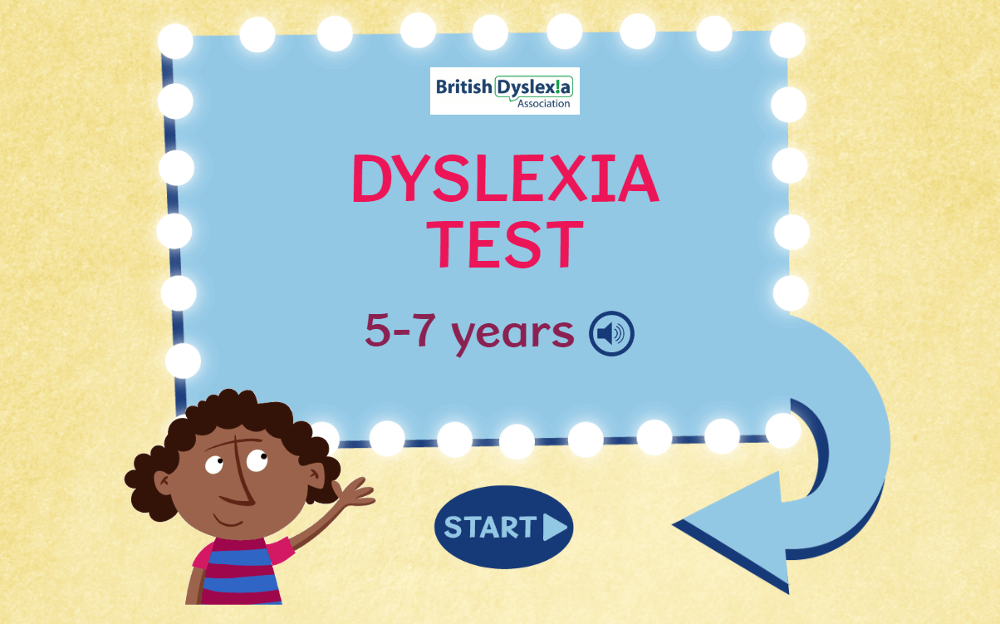
Early identification of dyslexia is essential because dealing with dyslexia in the first years of school is the most effective way to help. This free dyslexia test for 5-7 year olds is the ideal first step towards identification.
Free dyslexia ebook
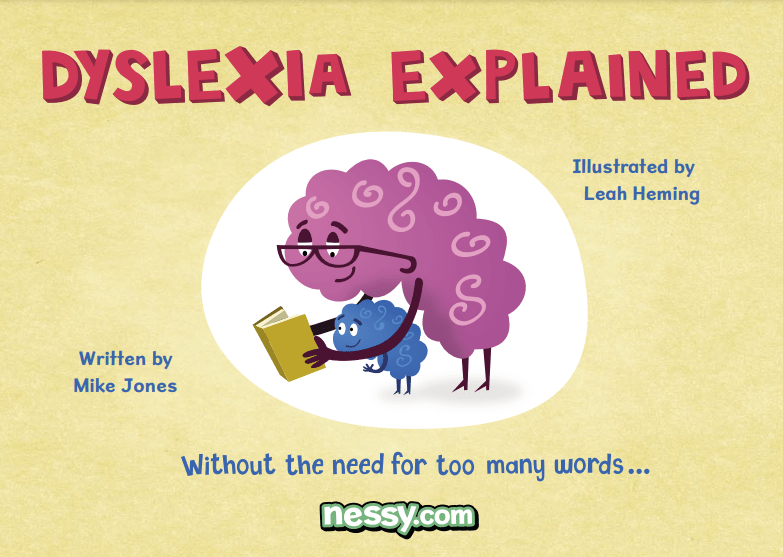
Download this free ebook called Dyslexia Explained, which helps parents understand the positives, the difficulties and what helps, so that they can use it to help explain dyslexia to their child.
And as people with dyslexia tend to think in pictures rather than words, illustrations are used to explain each point.
Even more resources for Dyslexia Awareness Week

- How working memory is affected by dyslexia and how to support pupils
- Read about what it really feels like to attend school if you’re dyslexic
- Find out how one school has created a successful pupil-led inclusion strategy based around neurodiversity champions
How to spot the signs of dyslexia
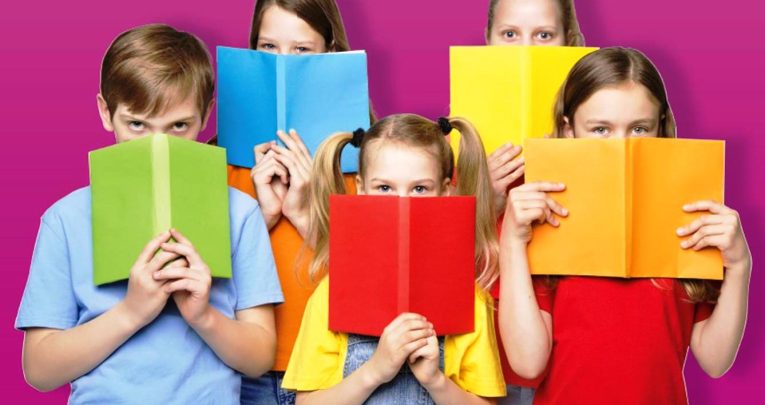
Author and dyslexia tutor Alais Winton highlights some of the dyslexia signs teachers should look out for…
Phonetic spellings
Spelling things as they sound tends to be a very common trait among children with dyslexia. Look also for inconsistent spelling and grammar – a child may potentially spell the same word in three different ways, one of which might be correct.
Unusual subject outcomes
Look for low reading and spelling results in relation to other subjects where they otherwise fare much better. Pupils with dyslexia will often possess a much higher verbal ability in comparison to their written work.
When talking to that pupil, they may come across as more articulate than their written work might suggest.
Literal thinking
Pupils with dyslexia can struggle to understand idioms and proverbs, and tend to have a very literal way of thinking. This makes it hard for them to understand expressions such as ‘water off a duck’s back.’
One of my past clients was once asked by his mum whether ‘it was sinking in’. He immediately looked to see what was sinking – he didn’t understand the analogy, mistaking it for something happening right now.
Early assessment scores
Early assessment is very important. Some schools will do this using online software solutions. Others will talk to their pupils and ask them to perform particular writing tasks or other activities.
Both processes should help you identify certain traits, tendencies or ‘at risk’ factors that can be reported back to parents. It’s important to remember that only an educational psychologist will be able to provide an official diagnosis.
Performance at KS2
The earlier you can identify dyslexia, the better. However, dyslexia often doesn’t get picked up before the age of seven.
In my own experience, signs of dyslexia more commonly start to emerge around the ages of nine and ten. But even then, there can be a degree of uncertainty as to what a child’s particular traits and tendencies might indicate.
More signs to look out for
Kate Griggs, founder and CEO of Made By Dyslexia, sets out some more things to look out for. Dyslexic children may:
- Struggle with manipulating and holding on to sounds and words, which can make learning to read and spell difficult
- Have difficulty with verbal memory which makes following instructions with multiple steps difficult
- Struggle with executive function skills such as organisation, concentration and sequential tasks
- Find maths operations difficult and struggle with memorisation
- Require more time to process their thoughts and complete tasks
Often in dyslexic children there is a mismatch in what a learner seems capable of and the written work they produce, and they may not have test scores and grades that reflect how much they have actually learned.
This is often misread in undiagnosed children as laziness or lack of concentration to the great detriment of the child and the ability of the teacher to assist them.
How to make your classroom dyslexic-friendly

Vary your print materials
Where possible, print class handouts on yellow paper. This won’t necessarily help all children with dyslexia, but can it can benefit a significant number. And doing so will ultimately make no difference for those who aren’t dyslexic. Try to print text in large fonts so that the material is easier to read.
Use handouts
On a number of occasions I’ve had children tell me about homework tasks they’ve been set that were written on the board or explained via verbal instructions that they had to write down.
By the time they get home they’ve no idea what they’ve actually written, and therefore no clue as to what they’re supposed to be doing.
Issue instructions and criteria on handouts whenever you can. This will not only save time, but help all children in the class, rather than just some.
Keep groups small
It can be useful in theory-heavy lessons, such as maths and English, to set group activities that present learning objectives in a more engaging way.
In my book Fun Games and Activities for Children with Dyslexia there’s an ‘English terms rap’ activity, where pupils examine antonyms and verbs and explain them in the style of a rap form by working together in small groups. One could be beatboxing, while others perform the different verses.
Use the right tools
I’ve found the Texthelp Read&Write literacy tool to be very good. It adds a floating toolbar to your desktop that includes a phonetic spell checker, text-to-speech, picture dictionaries and other useful tools to help with reading and writing.
For books and other printed materials the C-Pen is amazing. Plug in a pair of headphones, hold it like a normal pen and the tiny camera in its ‘nib’ will read text aloud to you as you move it along lines of words.
It also has a built-in dictionary that lets users highlight specific words and have their meanings read out.
Exercise caution
One thing I’d advise against is asking dyslexic pupils to correct their own spelling mistakes. I’ve spoken to some clients who’ve been asked by their teacher to correct their own spelling mistakes at home, but they simply can’t see them.
Praise the positive
If somebody’s made lots of spelling and grammatical errors, it’s easy to cover their sheet or workbook with corrections and forget to praise those things that are positive – areas where they’ve improved or aspects of their work that are particularly good.
That’s not always easy when you’ve got a huge amount of marking to get through, but it’s really important that the learner can come away from a task feeling there’s something good about the work they’ve been doing.
If you’re marking the work of a pupil whose spelling and grammar is clearly poor, you can comment on it. But if the same misspelt words keep coming up repeatedly, only comment on one instance and perhaps just underline the others so that they’re aware.
Praise any especially creative ideas or noticeable improvements they might have made – particularly words they might have previously misspelt.
Help parents to help their children
I recommend encouraging parents to play language-related games with their child. A couple I’d recommend include the spelling, punctuation and grammar board game Breaking News, which is aimed at ages seven and up.
Crossbow Education also produces some good specialist grammar games. Take into account the severity of a child’s dyslexia when you decide on whether a particular game is age-appropriate.
More ideas to try
Katie Griggs puts forth more suggestions for supporting dyslexic pupils at school…
Incorporate their passions
Look for and pay close attention to the dyslexic children in your class, and find out from the parents what they love to do.
These usually point to their dyslexic thinking skills, and you can learn about how you can integrate them into the children’s projects and goals.
Identify strengths
Look out for easy-to-spot strengths including sport, art, music and dancing, as well as other common dyslexic skills such as empathy, kindness, imagining, listening and questioning.
Acknowledge their expertise
Encourage dyslexic children to do what they love and are passionate about at every opportunity. Skill + practice + passion = superpower.
Acknowledge their expertise. Dyslexics often don’t realise how good they are at these things, so may not recognise them as their superpowers.
“Encourage dyslexic children to do what they love and are passionate about”
Positive praise
Build self-esteem with positive praise. Research suggests that we are most motivated to improve when we hear negative and positive comments in a ratio of 1:5. That’s five pieces of praise for every one negative comment.
Positive praise is vital for dyslexic children. And even if certain things are challenging, or progress is slow, each small win should be celebrated.
Embrace technology
Make the most of assistive technologies, such as text-to-speech and speech-to-text, spelling and grammar checking, tablets and calculators, and provide supports such as guided notes and copies of presentations.
Dyslexic children struggle with spelling, punctuation and grammar so focus on what they’re trying to say and their wonderful ideas first, rather than spelling – that can always be checked later.
Check your phonics approach
Use a multi-sensory, explicit phonics approach to better help pupils with dyslexia learn to read. Don’t force children to read aloud. Instead ask them if they would like to in advance and make it optional in a group setting.
Dyslexic learners will take longer to read than others so give them the text ahead of time so they have time to prepare before the lesson.
Provide accommodations
Consider different options to complete tasks, both in your classroom and during tests. Dyslexics love to have the big picture, so giving them an overview of your lesson ahead of time will help to them keep on track.
Provide accommodations on traditional exams and assessments, such as having the test read aloud, allowing students to dictate their answers, and provide additional time.
Kate Griggs is the founder and CEO of global charity Made By Dyslexia, host of the Lessons in Dyslexic Thinking podcast and the author of the books Xtraordinary People (£7.99, Penguin Random House Children’s) and This is Dyslexia (£9.99, Vermilion).
Do dyslexia overlays really work?
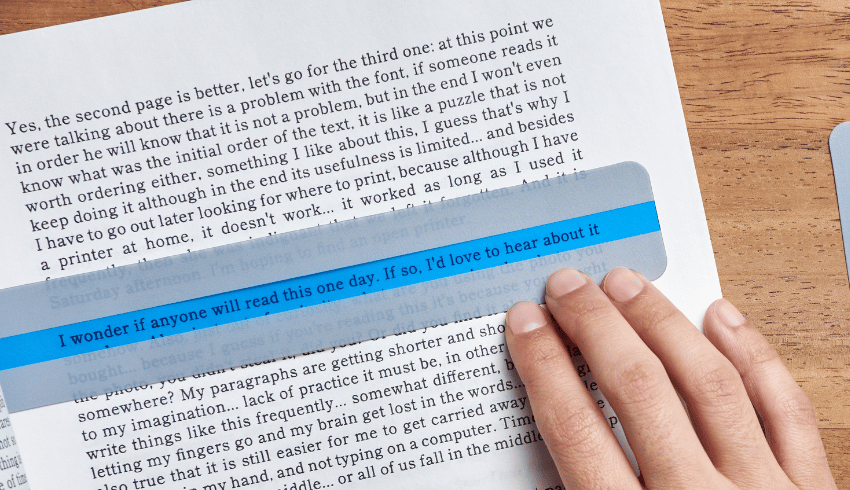
Does clinging to the overlay myth risk distracting us from what pupils actually need, asks specialist teacher Louise Selby…
If coloured overlays were a cure for dyslexia, we’d be stockpiling acetates instead of adapting teaching. It’s a comforting idea that a simple colour adjustment can clear up reading difficulties – but this glosses over the black-and-white truth that dyslexia is primarily an issue of auditory and memory processing, not visual perception.
Are overlays damaging?
Before the overlay defenders stage an intervention, let me be clear. Coloured overlays and pastel paper can genuinely help students who experience visual instability (also known as visual stress).
This is not about acuity – indeed, some within this group may have 20/20 vision – but rather how the eyes behave. These pupils will often describe words that run like rivers across the page.
It’s a valid and very real experience, and one best discussed with an optometrist. Moreover, pastel backgrounds on paper, screens, displays and, yes, overlays, often can help.
At the very least, they’ll certainly do no harm. The problems arise when we describe such measures as a ‘dyslexia intervention’. If you know, or suspect that a student has dyslexia, then overlays are unlikely to make a meaningful difference for them.
What can cause harm is assuming their needs are being met by coloured paper, rather than addressing the core difficulties typically found within someone’s auditory processing and working memory.
What should we do instead?
Small tweaks to teaching can be transformational for students with dyslexia, especially when they reduce pressure on working memory (which we use to briefly store information when processing it in order to perform a task).
Think of it as a Post-It note – something that’s fragile, and not intended to store large volumes of information for prolonged periods.
If our working memory capacity is reduced – as it often can be, due to dyslexia and other types of neurodivergence – then the more auditory information you’re asked to hold in your mind, the more vulnerable that information is going to be.
As teachers, our challenge is to reduce this load. Students with dyslexia will often benefit from visual support for their verbally expressed ideas, concise and meaningful captions, and well-organised information that’s personally engaging (since we know that memory works best when information is made personal).
They need bite-sized chunks, not information overload. Boring or dry information can be turned into actions or characters. Use visuals, sound and video clips as stand-ins for that mental Post-it that keeps flying away.
Build in time to think, talk and review, and explicitly teach how to take meaningful and useful notes.
So do overlays really work?
It can be hard to shift your mindset. If you’ve always used overlays with dyslexic pupils, then you might have found that they do make a difference.
I can promise you this, however – that if you direct your energy towards strategies aimed at supporting working memory, then you won’t just be helping your dyslexic learners. You’ll benefit every student in the room.
Louise Selby has worked in SEND for 25 years, and is presently a freelance specialist teacher, assessor, trainer and consultant, as well as author of the books Morph Mastery and All About Dyslexia.
The Delphi definition of dyslexia
Jennifer Hampton considers the profession’s continuing lack of knowledge regarding dyslexia – and whether a new consensus-built definition might change things for the better…
Since the first identification of dyslexia over a century ago, there’s been much debate over how to define it, with the lack of consensus between academics and researchers at times impeding the work of policymakers.
A key point of contention in this debate has concerned the value of a dyslexia diagnosis, though historically, said debate hasn’t always included the voices of young people themselves and their parents (though this is changing).
Defining dyslexia
At the present time, there are no publicly funded routes to securing a diagnosis of dyslexia. It remains an expensive process that requires considerable financial resources and commitment on the part of parents and carers.
That said, we have witnessed in recent years a heightened awareness of issues around neurodiversity, following dramatic rises in rates of autism and ADHD diagnoses among children and adults alike.
Dyslexia is similarly a neurodevelopmental condition, and while there’s been some informed, compassionate dialogue on social media among people sharing their stories and specialist teachers suggesting strategies (it really can be an excellent resource), I’m not sure that a constructive dialogue around dyslexia has reached secondary school settings, as is the case for autism and ADHD.
Delphi definition of dyslexia
This is despite the new Delphi definition of dyslexia telling us that dyslexia can frequently occur alongside other developmental conditions.
The 2024 Dyslexia Delphi Study, authored by academics from leading UK universities, sought to agree on a new definition of dyslexia by building consensus amongst numerous dyslexia experts, specialist teachers, educational psychologists and individuals with dyslexia. This newly developed definition is the one you’ll now find at the British Dyslexia Association’s website.
While it won’t have any retrospective bearing on past diagnoses, it does set out to dispel historical confusion, while addressing misconceptions around dyslexia and its links to visual stress and increased creativity.
Via The Dyslexia Delphi study, we do now at least have a definition of dyslexia that’s been reached by consensus, which certainly wasn’t the case previously.
The Delphi definition
- Dyslexia is a set of processing difficulties that affect the acquisition of reading and spelling. Some, or all aspects of literacy attainment will be weak in relation to the individual’s age, standard teaching and instruction, and level of other attainments
- Across all languages, the key markers of dyslexia difficulties are reading fluency and spelling ability. These are on a continuum, and can be experienced to various degrees of severity
- The nature and developmental trajectory of dyslexia depends on a range of multiple genetic and environmental influences
- Dyslexia can affect the acquisition of other skills, such as mathematics, reading comprehension or learning another language
- The most commonly observed cognitive impairment in dyslexia is a difficulty in phonological processing (i.e. phonological awareness, phonological processing speed or phonological memory) – though phonological difficulties alone don’t fully explain the variability that’s often observed
- Effects on working memory, processing speed and orthographic skills can contribute to the impact of dyslexia on a student’s outcomes
- Dyslexia can frequently co-occur with one or more other developmental difficulties, including developmental language disorder, dyscalculia, ADHD and developmental coordination disorder
Jennifer Hampton is an English teacher, literacy lead and former SLE (literacy).
Famous people with dyslexia
As Katie Griggs, founder and CEO of charity Made by Dyslexia, points out, dyslexic people have created some of the world’s greatest inventions, brands and art.
From Roald Dahl to Richard Branson, inspiring dyslexic minds have shaped culture and commerce over the last century, with their brilliant qualities and unique strengths.
“Inspiring dyslexic minds have shaped culture and commerce over the last century”
Dyslexic kids often become experts in the subjects they love because they are inquisitive and curious and use lots of dyslexic thinking skills – such as exploring and questioning – to find out all there is to know about a subject. But at the same time, they might struggle to grasp simple skills their peers find easy.
The well-known television chef Jamie Oliver visited Parliament in March 2025 to attend an event entitled ‘We Need To Talk About Dyslexia’. Oliver is currently campaigning for improved dyslexia provision in the country’s schools, highlighting the harmful impact on self-esteem and confidence when the needs of young people with dyslexia aren’t addressed.
Read about celebrities’ experiences with dyslexia
Use Dyslexia Awareness Week to highlight and celebrate famous people with dyslexia. Below are some exclusive Teachwire interviews with a range of different celebrities with dyslexia.
- Actor Zoë Wanamaker: “If you accept dyslexia and what it means for you, it can make you very determined”
- The late poet Benjamin Zephaniah: “Us dyslexic people, we’ve got it going on – we are the architects”
- Author Abi Elphinstone: “If we dare to believe in ourselves, we can be capable of extraordinary things”
- Historian Professor David Olusoga: “My school refused to acknowledge [my diagnosis] because it got in the way of a more simple argument – ‘Black people aren’t clever’”
Space scientist Dame Maggie Aderin-Pocock MBE on how her schooling was affected by undiagnosed dyslexia…
“I was quite disengaged with school at first. I have dyslexia – which I now see as my superpower – but I wasn’t diagnosed until I was in my 40s. Reading and writing was quite hard, and I was generally put in what used to be called the ‘remedial’ classes.
“It felt like school didn’t like me and that I didn’t like school – but I’d always had these dreams of becoming a space scientist, and finally decided to take advantage of changing schools again by trying really hard to get into the upper streams.
“For my last four years of schooling I was incredibly studious, barely even watching TV at home.”










